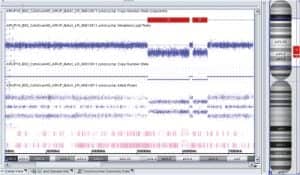Bio-Techne announced that Minneapolis-based Asuragen, a Bio-Techne brand, and scientific collaborators have published the results of a multisite evaluation study of the AmplideX PCR/CE SMA Plus Kit that validates its performance in delivering accurate, reliable information to support carrier identification or diagnosis of spinal muscular atrophy (SMA). These results were released in The Journal of Molecular Diagnostics.
The AmplideX PCR/CE SMA Plus Kit has a CE-IVD marking, for United States export only.
SMA occurs in as many as 1 in 6,000 births and is one of the most common heritable causes of infant death. ACOG recommends SMA carrier screening for all women who are pregnant or considering pregnancy. There are an estimated 6 million SMA carriers in the United States, reflecting a carrier rate of approximately 1 in 50 that spans diverse ethnic groups.
“Existing methods for identifying relevant variants in the SMN1 and SMN2 genes are often cumbersome, complex, and time-consuming,” says Gary J. Latham, PhD, chief scientific officer at Asuragen and senior author of the paper. “We believe this kit—which analyzes all variants in a single reaction—will be important for expanding the availability of reliable results to all populations.”
The emergence of molecular therapies to treat SMA has created urgency in identifying carriers and diagnosing affected children as early as possible. SMA is usually caused by deletions in the SMN1 gene whereas SMN2 copy number variations affect the onset and severity of disease. Additional variants in both genes have been associated with gene duplication or alternative splicing events that have implications for silent carriers and disease severity, respectively.
“The combination of gene copy numbers, disease modifier, and silent carrier variants in a single-tube PCR test is unprecedented. Our published study demonstrates this rapid, easy-to-run IVD test can be deployed across different laboratories to produce accurate and reliable data, even when stressed with challenging and diverse samples and genotypes,” says Henny Lemmink, PhD, clinical laboratory geneticist, Department of Genetics, UMC Groningen.
In the study, the AmplideX Kit was evaluated independently at GenePhile Bioscience Laboratory in Taiwan; the University Medical Center Groningen in the Netherlands; Turku University Hospital in Finland; and the Hospital of the University of Pennsylvania in Philadelphia, Pa. In total, 468 clinical DNA samples were tested. Overall, copy number results for the kit were 98.6% (SMN1) and 97.1% (SMN2) concordant with reference results from other methods, such as multiplex ligation-dependent probe amplification (MLPA). The additional variants were 100% concordant with Sanger sequencing.
“Breakthrough molecular medicines for SMA have raised the bar for more informative and timely SMA diagnostic assays even as labs have been overwhelmed by testing for the COVID-19 pandemic,” says Vivianna M. Van Deerlin, MD, PhD, director of the molecular pathology laboratory and professor of Pathology and Laboratory Medicine at the University of Pennsylvania Perelman School of Medicine. “Our validation results demonstrate that the AmplideX Kit not only produces quality results, but it does so using a fast, flexible format that can be easily implemented—at a time when efficient assays and lab operations are more important than ever.”





